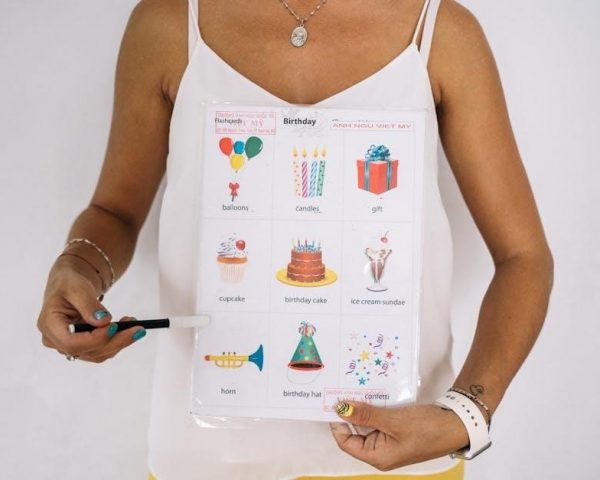Hypothesis Writing Practice Worksheets provide structured exercises for developing testable predictions‚ identifying variables‚ and understanding experimental design through clear examples and guided prompts. Perfect for students and researchers to refine their scientific inquiry skills.
What is a Hypothesis?
A hypothesis is a clear‚ testable prediction or explanation for a phenomenon‚ often stated in an “if-then” format. It proposes a relationship between variables‚ guiding scientific investigations and experiments. Hypotheses are not random guesses but educated guesses based on observations‚ research‚ or existing knowledge. For example‚ “If the amount of daylight increases‚ then the chickens will lay more eggs” is a testable hypothesis. It defines the independent variable (daylight) and predicts the outcome on the dependent variable (egg production). A good hypothesis is specific‚ measurable‚ and falsifiable‚ allowing scientists to validate or reject it through experimentation. Worksheets often include exercises to formulate hypotheses‚ identify variables‚ and practice proper formatting. These tools help learners master the foundational skill of hypothesis writing‚ essential for scientific inquiry and critical thinking.
Why Practice Writing Hypotheses?
Practicing hypothesis writing is essential for developing a strong foundation in scientific inquiry and critical thinking. It helps learners understand how to formulate clear‚ testable predictions that guide experiments. Worksheets provide structured exercises to refine skills in identifying independent and dependent variables‚ ensuring hypotheses are specific and measurable. Regular practice fosters the ability to think logically and design experiments effectively. By working through examples‚ such as predicting outcomes based on variables‚ students learn to avoid vague or untestable hypotheses. This practice also enhances problem-solving skills and the ability to interpret results. Worksheets with answers offer guidance‚ allowing learners to compare their work and improve accuracy. Mastering hypothesis writing is a crucial step in conducting meaningful experiments and advancing scientific knowledge. Consistent practice builds confidence and proficiency in articulating hypotheses clearly and effectively.
Structure of a Hypothesis
A well-structured hypothesis follows a clear format‚ typically using the “If‚ then‚ because” framework. It begins with an independent variable‚ which is the factor being manipulated; For example‚ “If the amount of daylight increases‚”. This is followed by the dependent variable‚ the expected outcome‚ such as “then the chickens will lay more eggs.”. Finally‚ the hypothesis should include a brief explanation‚ “because increased daylight exposure can stimulate egg production.”. This structure ensures clarity and testability‚ making it easier to design experiments. Worksheets often emphasize this format‚ providing examples like‚ “If dogs are fed treats‚ then they will bark less‚ because treats may distract or calm them.”. By adhering to this structure‚ learners can create hypotheses that are both logical and experimentally valid‚ fostering effective scientific exploration and analysis. This method is widely taught in educational settings to promote consistency and accuracy in hypothesis writing.
Key Components of a Hypothesis
- Independent Variable: The factor manipulated by the experimenter.
- Dependent Variable: The outcome measured in response.
- Controlled Variables: The factors kept constant in an experiment.
Independent Variable
The independent variable is the factor deliberately manipulated by the experimenter to observe its effect on the outcome. It is a crucial component of any hypothesis‚ as it drives the experiment’s results. For instance‚ in a hypothesis like‚ “If the amount of daylight increases‚ then the chickens will lay more eggs‚” the independent variable is the amount of daylight. Worksheets often provide scenarios where students identify and circle the independent variable‚ ensuring a clear understanding of its role. Practice exercises also emphasize how to design experiments by altering this variable while keeping others constant. This skill is essential for forming testable hypotheses and conducting controlled experiments effectively.
Dependent Variable
The dependent variable is the outcome or result measured in an experiment‚ directly influenced by the independent variable. It is the factor being observed and recorded. For example‚ in the hypothesis‚ “If dogs are fed treats‚ then they will bark less‚” the dependent variable is the frequency of barking. Worksheets often require underlining or identifying this variable‚ helping students understand its role in testing a hypothesis. Practice exercises provide scenarios where learners predict how changes in the independent variable will affect the dependent variable. This practice is vital for developing clear‚ testable hypotheses and interpreting experimental data accurately. Mastering the dependent variable concept enhances one’s ability to design and analyze experiments effectively.
Controlled Variables
Controlled variables are factors kept consistent across all experimental groups to ensure fairness and accuracy in testing a hypothesis. These variables do not change‚ allowing researchers to isolate the effect of the independent variable on the dependent variable. For example‚ in an experiment testing the effect of daylight on egg production‚ controlled variables might include feed quality‚ temperature‚ and cage size. Worksheets often ask students to identify and list these variables‚ ensuring they understand their importance in maintaining a controlled experiment. By practicing with such exercises‚ learners develop the ability to design experiments where only the independent variable is manipulated. This skill is crucial for drawing valid conclusions and avoiding confounding results‚ making controlled variables a cornerstone of scientific inquiry and hypothesis testing.
Examples from Worksheets
Worksheets often include scenarios like‚ “If chickens receive more daylight‚ then they will lay more eggs‚” allowing students to practice writing and analyzing hypotheses effectively.
Sample Hypotheses from Worksheets
One example from the worksheets is: “If male participants are given the opportunity to help an injured person‚ then they will do so more frequently than female participants.” This hypothesis is structured in the If-Then format‚ clearly stating the independent and dependent variables. Another sample hypothesis provided is: “If the amount of daylight increases‚ then chickens will lay more eggs‚” which demonstrates a cause-and-effect relationship. These examples are designed to help students understand how to formulate clear‚ testable hypotheses. The worksheets also include questions that prompt learners to write their own hypotheses‚ such as investigating the effect of listening to rock music on concentration or the impact of TV watching time on behavior. Each exercise is accompanied by answers to guide students in refining their hypothesis-writing skills.
Identifying Variables in Examples
In the worksheets‚ identifying variables is a key focus. For instance‚ in the hypothesis‚ “If the amount of daylight increases‚ then the chickens will lay more eggs‚” the independent variable is the amount of daylight‚ while the dependent variable is the number of eggs laid. Controlled variables might include feed quality and environmental conditions. Another example: “If male participants are given the opportunity to help an injured person‚ then they will do so more frequently than female participants‚” where the independent variable is gender‚ and the dependent variable is the frequency of help. These exercises train learners to pinpoint variables accurately‚ ensuring hypotheses are testable and experiments are well-designed. By practicing with such examples‚ students improve their ability to distinguish between variables‚ enhancing their scientific reasoning skills. This clarity is essential for conducting valid experiments and interpreting results effectively.

How to Write a Testable Hypothesis
A testable hypothesis is written using an If‚ then‚ because structure‚ ensuring clarity and specificity. This format allows for clear experimentation and measurable outcomes‚ making the hypothesis valid for testing. Always define variables clearly to establish a clear cause-and-effect relationship and avoid vague statements. This approach ensures the hypothesis is concise‚ focused‚ and scientifically rigorous‚ providing a solid foundation for experimental design and analysis. By adhering to this structure‚ hypotheses become actionable and easier to evaluate‚ helping researchers draw reliable conclusions from their data. Properly crafted hypotheses are essential for advancing scientific knowledge and understanding complex phenomena. They guide the experimental process‚ enabling researchers to test assumptions systematically and refine their theories based on evidence. This structured approach fosters critical thinking and methodical investigation‚ which are cornerstones of scientific inquiry. Through practice‚ learners can master the art of hypothesis writing‚ enhancing their ability to design and execute effective experiments. This skill is invaluable in both academic and professional settings‚ as it promotes innovation and problem-solving. By focusing on clarity and specificity‚ hypotheses become powerful tools for driving discovery and advancing understanding in various fields of study. They also facilitate collaboration‚ as clear hypotheses ensure that all team members understand the objectives and parameters of the research. Ultimately‚ well-crafted hypotheses are the backbone of successful scientific investigations‚ providing direction and purpose to experimental work. They enable researchers to explore unknowns‚ challenge existing theories‚ and uncover new insights that contribute to the broader body of knowledge. With consistent practice‚ anyone can develop the skills needed to write robust‚ testable hypotheses that yield meaningful results and support meaningful conclusions. This process not only strengthens research skills but also enhances overall analytical thinking and problem-solving abilities. By mastering hypothesis writing‚ individuals can approach scientific challenges with confidence and precision‚ ensuring their work is impactful and contributes positively to their field. The ability to write clear‚ testable hypotheses is a fundamental skill that underpins all scientific endeavors‚ making it an essential area of focus for students and researchers alike. Through dedicated practice and a commitment to excellence‚ this skill can be honed and applied effectively in real-world scenarios‚ driving progress and innovation across disciplines. The key is to remain focused on the core principles of hypothesis writing‚ ensuring that each hypothesis is well-defined and actionable. This attention to detail not only improves the quality of research but also elevates the credibility of the findings‚ making them more reliable and relevant to the scientific community. By prioritizing clarity and structure‚ hypothesis writing becomes a powerful tool for advancing knowledge and addressing complex questions in a systematic and efficient manner. Through continuous learning and application‚ individuals can become proficient in crafting hypotheses that guide impactful research and contribute to meaningful breakthroughs in their fields of interest. The journey to mastering hypothesis writing is ongoing‚ but with persistence and dedication‚ it becomes a cornerstone of successful scientific practice‚ enabling individuals to explore‚ discover‚ and innovate with precision and confidence. This foundational skill not only enhances research capabilities but also fosters a deeper understanding of the scientific method and its application in addressing real-world challenges. By embracing the principles of testable hypothesis writing‚ learners can unlock their full potential as researchers and contributors to the scientific community‚ driving forward the boundaries of human knowledge and understanding. The process of writing a testable hypothesis is both an art and a science‚ requiring careful consideration of variables‚ outcomes‚ and underlying principles. It demands a balance between creativity and rigor‚ as hypotheses must be innovative yet grounded in observable phenomena. Through practice‚ individuals can refine their ability to articulate clear‚ concise hypotheses that align with experimental goals and objectives. This skill is particularly valuable in interdisciplinary research‚ where clear communication of hypotheses is essential for collaboration and understanding among diverse teams. By focusing on the fundamentals of hypothesis writing‚ researchers can ensure their work is well-founded and capable of producing meaningful‚ actionable results; The ability to write testable hypotheses is not just a technical skill but also a cognitive one‚ requiring critical thinking and analytical reasoning. It involves evaluating assumptions‚ anticipating outcomes‚ and designing experiments that can validate or refute the hypothesis. This process sharpens the mind and prepares researchers to approach complex problems with a logical and systematic mindset. Furthermore‚ it fosters a culture of inquiry and curiosity‚ encouraging individuals to explore new ideas and challenge existing theories. By engaging in regular practice‚ learners can overcome common challenges and develop a keen sense of how to frame hypotheses effectively. This proficiency not only enhances the quality of their research but also increases their confidence in presenting and defending their work. In summary‚ writing a testable hypothesis is a critical skill that requires attention to structure‚ clarity‚ and specificity. By adhering to the If‚ then‚ because format and focusing on well-defined variables‚ researchers can craft hypotheses that are actionable‚ measurable‚ and scientifically valid. Through consistent practice and a commitment to excellence‚ this skill can be mastered‚ enabling individuals to contribute meaningfully to their fields and advance the frontiers of knowledge. The art of hypothesis writing is a journey that requires patience‚ dedication‚ and a passion for discovery‚ but the rewards are immeasurable for those who pursue it with diligence and enthusiasm.
Step-by-Step Guide
Identify the Research Question: Start by clearly defining the question or problem your experiment aims to address. This provides the foundation for your hypothesis.
Determine Variables: Identify the independent variable (what you will manipulate) and the dependent variable (what you will measure).
Predict the Outcome: Formulate a clear prediction using the “If‚ then‚ because” structure. For example‚ “If [independent variable]‚ then [dependent variable]‚ because [rationale].”
Ensure Testability: Make sure your hypothesis is specific and can be tested through experimentation. Avoid vague statements.
Review and Refine: Check your hypothesis for clarity and accuracy. Ensure it aligns with your research question and variables.
Example: “If plants receive more sunlight‚ then they will grow taller‚ because sunlight promotes photosynthesis.” This format ensures your hypothesis is actionable and measurable.
By following these steps‚ you can craft a well-structured‚ testable hypothesis that guides your experiment and helps draw meaningful conclusions.
Common Mistakes to Avoid
When writing hypotheses‚ several common mistakes can undermine the validity of your experiment. One major error is creating a hypothesis that is too broad or vague‚ making it impossible to test effectively. For instance‚ stating “The color of a room affects mood” lacks specificity and measurable outcomes.
Another mistake is failing to clearly define the independent and dependent variables‚ leading to confusion in experimental design. Additionally‚ many hypotheses are not testable due to poor structure or unrealistic assumptions.
It’s also important to avoid bias by ensuring the hypothesis is objective and not influenced by preconceived notions. Lastly‚ neglecting to include a rationale (“because”) can weaken the hypothesis by omitting the underlying reasoning.
By being aware of these pitfalls‚ you can craft precise‚ testable hypotheses that guide meaningful experiments and lead to reliable conclusions.

Practice Worksheets with Answers
Practice Worksheets with Answers are essential tools for mastering hypothesis writing. They provide structured exercises‚ clear examples‚ and correct answers to help improve your skills in creating testable hypotheses and understanding variables effectively.
Where to Find Worksheets Online
There are numerous online platforms offering hypothesis writing practice worksheets with answers PDF. Educational websites like Google Classroom‚ Pinterest‚ and Teachers Pay Teachers provide a variety of downloadable resources. Additionally‚ websites such as Education.com and Worksheet Genius feature comprehensive collections of hypothesis-writing exercises. These platforms often categorize worksheets by difficulty level or specific topics‚ making it easy to find materials tailored to your needs. Many worksheets include answers‚ allowing users to self-assess and improve their understanding. To locate these resources effectively‚ use search terms like “hypothesis writing practice worksheet with answers PDF” or “testable hypothesis exercises for students.” Always ensure the credibility of the source to access high-quality‚ accurate materials.
How to Use Worksheets Effectively
To maximize the benefits of hypothesis writing practice worksheets with answers PDF‚ start by carefully reading each question and understanding the experimental scenario. Begin by identifying the independent and dependent variables‚ then formulate a clear‚ testable hypothesis using the “If‚ then‚ because” format. Complete the exercises without skipping steps‚ as this helps reinforce the learning process. After writing your hypotheses‚ compare them with the provided answers to assess accuracy and identify areas for improvement. Pay attention to feedback‚ especially regarding clarity and testability. Regularly practicing with these worksheets enhances your ability to design experiments and predict outcomes effectively. Consistent use of these resources will strengthen your critical thinking and scientific reasoning skills‚ making you more confident in hypothesis writing and experimental design.

Reviewing and Understanding Answers
Reviewing answers helps identify strengths‚ weaknesses‚ and areas for improvement in hypothesis writing. Comparing your responses with correct answers enhances understanding and clarifies concepts effectively.
Learning from Correct Answers
Reviewing correct answers in hypothesis writing practice worksheets provides clarity on proper structure‚ variable identification‚ and logical reasoning. By comparing your responses with provided answers‚ you can identify common mistakes‚ refine your understanding of testable hypotheses‚ and improve your ability to predict outcomes. Correct answers often highlight clear cause-and-effect relationships‚ helping learners grasp how to formulate precise predictions. Additionally‚ they emphasize the importance of defining independent and dependent variables accurately. This process reinforces the scientific method and enhances critical thinking skills. Consistent practice with feedback ensures steady improvement in developing well-structured hypotheses for experiments. Over time‚ learners become more adept at translating investigative questions into actionable scientific predictions. This iterative learning process is essential for mastering hypothesis writing in various experimental contexts.
Understanding Null and Alternative Hypotheses
Null and alternative hypotheses are fundamental concepts in scientific research‚ often addressed in practice worksheets. The null hypothesis (H₀) represents a statement of no effect or no difference‚ while the alternative hypothesis (H₁) proposes a specific effect or difference. Worksheets provide exercises to distinguish between these two‚ helping learners understand their roles in experimentation. For example‚ a null hypothesis might state‚ “There will be no change in plant growth‚” while the alternative could predict‚ “Plant growth will increase with more sunlight.” These exercises clarify how to structure and test hypotheses‚ ensuring a clear understanding of their application in research. By practicing with examples‚ users can better grasp how to formulate and interpret null and alternative hypotheses‚ enhancing their ability to design and analyze experiments effectively. This skill is crucial for drawing accurate conclusions in scientific studies.

Applying Hypotheses in Experiments
Hypotheses guide experimental design‚ ensuring tests are structured to validate predictions. Worksheets teach how to translate hypotheses into actionable experiments‚ emphasizing clear variables and measurable outcomes for reliable results.
Designing an Experiment Based on a Hypothesis
Designing an experiment based on a hypothesis involves translating the hypothesis into a structured plan. Worksheets guide learners in defining independent‚ dependent‚ and controlled variables‚ ensuring clarity and focus. By outlining procedures‚ data collection methods‚ and expected outcomes‚ experiments become systematic and reproducible. Worksheets often include examples‚ such as testing the effect of daylight on egg production‚ to illustrate how hypotheses shape experimental design. They emphasize the importance of clear predictions and measurable results‚ helping users avoid vague or untestable scenarios. Through practice‚ individuals learn to refine their hypotheses and create experiments that accurately test their predictions‚ fostering critical thinking and scientific rigor.
Predicting Outcomes
Predicting outcomes is a critical step in hypothesis writing‚ as it defines the expected results of an experiment. Worksheets often include sections where users outline these predictions‚ ensuring they are specific and measurable. For example‚ a hypothesis about increased daylight leading to higher egg production would predict a numerical increase in eggs laid. These predictions guide the experimental design and data collection process. Worksheets emphasize the importance of clear‚ testable predictions to avoid vague or unmeasurable outcomes. By practicing outcome prediction‚ individuals develop the ability to formulate hypotheses that are both precise and scientifically valid. This skill is essential for interpreting results and determining whether the hypothesis is supported or rejected. Worksheets also highlight common mistakes‚ such as overly broad predictions‚ and provide examples to help users refine their skills.


